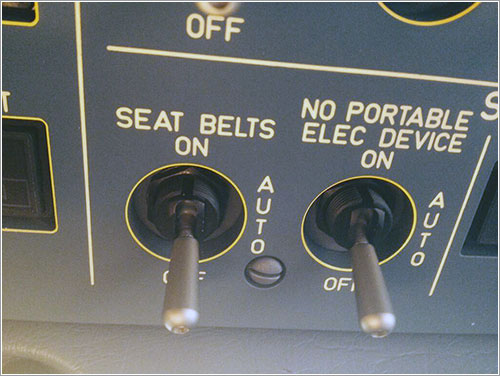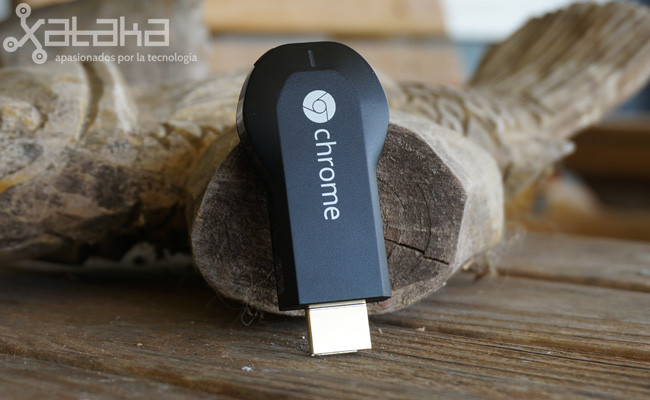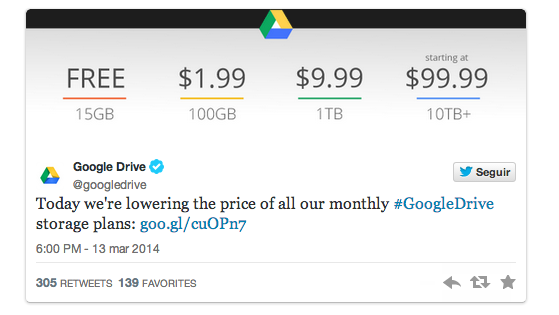Observatorio tecnológico del 10 al 16 de marzo

It took its time, but Spain's National Aerial Safety Agency (AESA) has processed and approved the relevant documents so that, as of today, both Iberia and Vueling now authorize the use of electronic devices in airplane mode during all phases of flight onboard their planes. In addition, Iberia has received authorization to offer a Wi-Fi and GSM connection onboard, services that will be progressively added, although the necessary equipment is only installed in its six A330 and seven of its A340-600. The corresponding press releases are in Iberia customers may now use their electronic devices during the entire flight and Vueling now allows the use of electronic devices during all flight stages. We should remember that the regulation applies to devices such as mobile phones, tablet PCs, electronic books, music players, and other of similar size. The use of portable computers will continue to be barred during taxiing, takeoff, and landing, as their size could turn them into obstacles in evacuation scenarios. The rest of airlines who requested the authorization from the AESA will probably also receive it shortly.

Sundar Pichai commented during his intervention in the SWSW event that Chromecast is operating very well on the market, and that there are plans for expansion in order to reach new markets in the near future... Since its appearance on the market there had been no news about its sales, although it was guessed to be an interesting device for a lot of people; expectations at its launch were high. They are now telling us that "millions" of units have been sold, a figure that is vague although striking. It has been on the market since last summer and its sales appear to be holding up beyond the boom experienced at launch. The idea they want to us to get is that Chromecast has been a success for Google, with details such as the fact that units were sold out over the few days, or that at a given time, more units were sold than Kindles in Amazon.com. True enough, Google's hardware business was lucrative during the fourth quarter of 2013, and it's fair to assume that a good part of this came from the accessory in spite of its low cost (we don't think the margin is too large). It would be helpful to have more concrete sales figures, to be able to compare it with devices that resemble it a bit, or overlap in features. For instance, Roku just announced that it has sold eight million units in the US. Apple does not disclose units sold figures either, but we know that last year it earned US$1 billion with its Apple TV. The next logical step is to keep extending the product's reach toward new markets, something which is going to happen soon. They’re not providing details but it is expected that Latin America and some European markets will be in next destination. As of now in the UK and Australia they are expected this month of March. We hope that Spain will be included in the next rollout phase, in spite of reservations with respect to the lack of the same services that are available in the US. In short, Chromecast is an accessory that allows us to connect a mobile device to the television. It has a relatively low price, 35 dollars in the US, and you can learn more about in the following analysis.
Amazon has just announced the launch of "collection points" in Spain, allowing its customers to pick up their packages in over 1,200 physical stores. Users of the platform will therefore be able to choose between sending their purchases to their house or other address, or request that they be left in a store near them. It's very good news for those of us who are using this platform because from hereon we won't have to be tied down by a delivery time, being able to go on with our daily routine and have a physical place to go pick up our orders when we have time, although they will only keep it in store for 14 days. The service is already available through the 1,200 stores in the Peninsula and Balearic Islands operated by the network Kiala, a UPS company. There will be no extra charge for this service. Upon selecting the destination store, its location and opening hours will be shown. Subsequently, one will merely need to go and present an ID to withdraw the order, although third parties may also be authorized.

We had to wait a bit longer than expected, but at last the time has come: Apple has just begun the rollout of iOS 7.1 for its mobile device fleet and, as usual, the update comes loaded with important new features. This firmware update is compatible with the apple's latest devices, starting with iPhone 4, iPad 2, iPad mini, and iPod touch 5th generation (including its current versions). Among its principal appeals, the new software package comes including support for the recently announced CarPlay, to better integrate many of Apple's devices in cars, therefore allowing easier access to one's music, answer calls, or review one's route. The new version comes with some minor interface changes, but also changes to Siri and certain applications –Calendar, iTunes Radio, etc.–to improve general functionality. With respect to the Personal Assistant from those in Cupertino, the company has implemented a new system that makes Siri patiently wait for you to stop pressing the Home button to process your request, doing away with those situations in which the program mistook a pause with the end of the interaction. Another interesting detail is the arrival of a new option in the camera app that allows automatic activation of the HDR mode in iPhone 5s, while it adds substantial improvements to the fingerprints recognition system Touch ID. In addition, as with any good and worthy update, it manages to get rid of some of the bugs that were still pending resolution, such as for example the random restarts with certain iOS7 machines. The iOS 7.1 installation package may be downloaded both over-the-air or through iTunes, although you should be aware that its size is 1.4 Gb in the case of the iPhone and 1.5 Gb in the case of the iPad, so you can choose the option best suited to your needs.
Sir Tim Berners-Lee, the "creator" of the World Wide Web has made a series of declarations in connection with the 25th anniversary of the birth of his invention calling for the neutrality of the Internet to be respected, in order to protect the independence and rights of its users. At a time when privacy is a highly relevant current affair, he states that a constitution is needed to establish certain ground rules. In recent statements to The Guardian, he has been highly critical of spying activities by governments such as the US's or UK's, and that it is time to move forward on achieving freedom for the Network. If we fail to do so, we would find ourselves on obscure ground, far away from impartiality:
"Unless we have an open and neutral Internet in which we can trust without preoccupation of what will go one behind doors, we will not be able to have a good democracy, transparent government, good health, connected communities, and a diversity of cultures. To think that we can have this doesn't amount to naivety: naivety would be sitting still and thinking we're not going to achieve it."
He took the opportunity to announce that he will execute this plan, forming part of a project called “The Web We Want”, of which Berners-Lee is part of and in which the effort is made to preserve freedom of expression and anonymity. Twenty-five years later we are continuing to struggle for the most basic principles on the Internet.
The possible acquisition of ONO by Vodafone increasingly resembles an endless TV series. Today seemed to be the day that the sale of the cable company to the British company would be closed but, according to Reuters, who reported on Friday that a preliminary agreement had been drawn up, the sale is still not taking place. Today's shareholders meeting ended in the decision to go ahead with previous plans to float the company. In spite of this sources assure us that talks with Vodafone are also moving forward, so that all seems to be indicating that the owners of ONO are still trying to pressure its possible buyer into raising its offer. The matter is simple: there is still no deal. The idea that the sale of ONO to Vodafone was going to be a question of days is fading in the distance. It is no surprise that current shareholders of the company, in large part risk capital funds with up to ten years in the company, want to pressure the red company to obtain a greater benefit in a sale that isn't yet closed. On Friday news reports seemed to be indicating that there already was a preliminary agreement between the two parties, after the President & COO of Vodafone met with several shareholders to agree on a price, yet the general shareholders' meeting did not approve the agreement today. Therefore plans to be traded on the stock market are not being discarded although months remain ahead before this can take place–enough time for a sales agreement.

Google announced in its official blog that subscription prices to Google Drive, its Cloud storage platform (and also online office productivity tools) have been reduced to a more than generous level. From this moment on, Google Drive's new monthly plans range from barely US$1.99 per month for an additional 100 GB to US$99.00 for 10 TB. Before, one had to pay five dollars per month for these 100 GB, so that the price decrease has been over 50%. These are additional to the 15 GB that Google already offers for free to all its users, spread over Gmail, Google+ and, naturally, Google Drive. Monthly Google Drive subscription plans are available from this official Web site and clearly amount to a more than attractive option for those of us who depend in large part on the Cloud for our daily jobs and tasks. Google Drive and its 15 GB was always there, but now with these plans, for barely two dollars a month you can increase your storage to 115 GB if you need that much space.
The new came out at the end of January: Vodafone was negotiating the purchase of Ono with the objective of increasing its fixed telephony services in Spain, and it is finally confirmed that the acquisition has been officially closed. The British operator has paid 7.2 billion euros to acquire 100% of the capital of the operator based in Pozuelo, including a debt of 3.4 billion euros. The announcement is official but some months will pass still before the agreement is actually signed as the acquisition must be first given the go-ahead by the authorities. It is not known whether the Spanish CNMC (National Commission on Markets and Competition) or administrations of the European Union are charged with final approval for an acquisition of this size. The purchase of Ono by Vodafone gives access to the operator with the red logo to a portfolio of seven million customers to which the operator provides fiber network access, the key asset coveted by the British company. The British operator will therefore now be able to strengthen its combined mobile, Internet, and voice offer to its subscribers, a strategic step with which it aims to face Movistar in similar conditions. In addition to the approval by the authorities monitoring competition, the acquisition will create a new question for Vodafone: what to do with the FTTH network that it was rolling out in collaboration with Orange, although in a few months we will know exactly what the future plans of the company are in Spain following the purchase.
Huawei is actively working on the launch of a mobile terminal with a double booting facility: either Android or Windows Phone. According to Huawei Chief Marketing Office Shao Yang, the company is still interested in producing Windows Phone terminals, but since this is a low priority, they are adopting a multi-OS strategy. Yang commented that a smartphone with Android and Windows Phone will reach a larger user base given they can enjoy the good things about both platforms with the same device. It is hoped that they will launch the smartphone in the US during this second quarter, i.e. before summer and more or less when Microsoft is planning to launch Windows Phone 8.1. The company commented that it will continue to monitor the progress of other operating systems as well as their own operating system that they have been preparing for months. Now, does this type of device make sense?
